Expenditure and Prescriptions Report 1 July 2022 to 30 June 2023
Page last updated: 22 December 2023
Summary of Pharmaceutical Benefits Scheme 2022-23
Total Pharmaceutical Benefits Scheme (PBS) Government expense for the supply of medicines under Section 85 and Section 100 on an accrual accounting basis for the 2022-23 financial year was $17.0 billion (excluding revenue), compared with $14.7 billion for the previous year. This is an increase of 15.6%.
The majority of the Expenditure and Prescriptions report refers to PBS Section 85 and Section 100 data reported by financial year (based on date of supply); however, a few tables refer to Section 85 only and some tables report pharmacy program expenditure.
Total 2022-23 PBS subsidised prescription volume increased by 3.7% to a total of 223.1 million, compared to 215.1 million for the 2021-22 financial year.
In 2022-23, PBS Government expenditure on a cash accounting basis for the supply of medicines under Section 85 and Section 100 was $16.7 billion (excluding rebates) which is 91.4% of the total cost of PBS prescriptions. The remainder was patient contributions, which amounted to $1.6 billion.
The majority of Government expenditure in 2022-23 on PBS Section 85 and Section 100 prescriptions was directed towards concessional cardholders ($10.5 billion, 62.6% of the total), compared to concessional cardholders expenditure for 2021-22 ($9.3 billion, 64.4% of the total).
The average dispensed price (Patient payment plus Government benefit) per prescription of PBS subsidised medicines increased to $81.73 in 2022-23, compared to $74.67 in 2021-22.
There were 928 different medicines in 5,261 brands listed on the PBS as at 30 June 2023.
Important Information
Unless otherwise indicated this publication has been produced using data provided to the Department of Health and Aged Care by Services Australia. The figures reported in this publication relate to the value (benefit) or volume of PBS prescriptions that have been processed by Services Australia. They refer only to paid services processed for prescriptions submitted and claimed via the PBS Online claiming system by approved suppliers. Claims of manually processed PBS programs are excluded.
PBS Expenditure includes the following patient categories:
- General - Non-Safety Net (Ordinary)
- General - Safety Net
- Concessional - Non-Safety Net (Ordinary)
- Concessional - Safety Net
- Doctor's Bag
The financial information in this publication is presented on a cash (expenditure) basis, except where indicated otherwise.
The patient category refers to the patient's eligibility status at the time of supply of the benefit. General patients hold a Medicare card, Concessional patients hold a Medicare card and one of the following cards from Centrelink:
- Pension Concession Card
- Commonwealth Seniors Health Card
- Health Care Card
There are two safety net thresholds – one for General patients and the other for Concessional patients.
From 1 January 2023, the following changes have implemented:
- the general patient safety net threshold was $1,563.50. When patients and/or their families reached this amount, they could apply for a Safety Net Card and pay only $7.30 per prescription for the rest of the calendar year. The concessional safety net threshold was $262.80. Once patients and/or their families reached this amount, they could apply for a Safety Net Entitlement Card and receive items free of charge for the rest of the calendar year.
- The PBS general patient co-payment amount was lowered from $42.50 to $30.00 per prescription. The concessional co-payment amount increased from $6.80 to $7.30.
The Patient Contribution, Total Cost and Average Price amounts do not include brand or therapeutic premiums.
From 2016-17 this publication is based on the date that a prescription medicine was supplied to a patient. Previous publications were based on the date that a claim was processed (and the payment finalised) by Services Australia. The historical data from 1948-49 to 2015-16 in the Excel tables remains by date of processing.
Caution should be exercised in referring to the breakdown by patient category in Table 20(a) and Table 20(b) in the Excel tables, because of a past problem in supply data whereby a number of General Safety Net scripts were wrongly allocated to Concessional Non-Safety Net. This problem was fixed from 2008-09 onwards, but the 2006-07 and 2007-08 allocations of scripts and expenditure by patient category were inaccurate and not strictly comparable to the corresponding 2008-09 and later years’ numbers.
While Section 100 data has been included in the majority of tables in this report, this data does not include supplies to Remote Area Aboriginal Health Services with the exception of Tables 1(a) and 1(b) on page 2.
Expenditure on nusinersen and onasemnogene abeparvovec was adjusted to include manual payments that were not processed through the PBS Online system.
The Department of Health and Aged Care has taken every care to ensure the data supplied
is accurate but does not warrant that the data is error free and does not accept any
liability for errors or omissions in the data.



